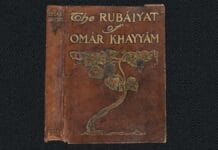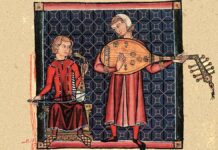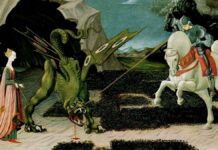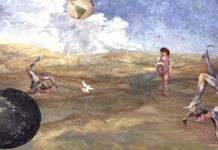Narayana Guru, born in 1856 and living until 1928, stands as one of the most influential philosopher-sages and social reformers in modern Kerala. He combined spiritual insight, poetic expression, and social activism into a unified way of life that blurred the boundaries between metaphysics and public ethics. After completing his traditional education in a gurukulam, he travelled widely in search of knowledge and spent long years in meditation at Maruthvamala. Later, while meditating in a cave at Aruvippuram in 1888, he consecrated a stone from the river as Lord Siva. When questioned by Brahmins about his right to install an idol, Guru replied that it was an “Ezhava Siva,” making a quiet yet revolutionary assertion that divinity and worship were not restricted to any caste.
- Birth/education/training: Narayana Guru (1856–1928) studied in gurukula settings, then undertook itinerant study and long periods of meditation (Maruthvamala; later the cave at Aruvippuram, 1888).
- Aruvippuram Pratiṣṭha (1888): He consecrated a stone as Śiva taken from the river. When challenged by Brahmins, he replied that it was “Ezhava Śiva”, a quiet but radical assertion that spiritual access is universal.
In 1903, at the initiative of Dr Padmanabhan Palpu, he founded the Sree Narayana Dharma Paripalana Yogam (SNDP) at Aruvippuram. A year later, he moved to Sivagiri near Varkala, where he started a school for children of all castes and later built the Sarada Mutt in 1912. His temple consecrations were remarkable for their non-conventional symbolism: instead of anthropomorphic deities, he installed objects such as mirrors or inscribed slabs bearing messages like “Truth, Ethics, Compassion, Love.” This reflected his philosophical conviction that self-knowledge and moral conduct were the true paths to the divine. He built 45 temples across Kerala and Tamil Nadu, spreading his message of unity and social equality.
- Institution-building: At Aruvippuram in 1903, with Dr Padmanabhan Palpu, he founded SNDP Yogam (Sree Narayana Dharma Paripalana Yogam).
- Later moved to Sivagiri (near Varkala), started a school open to all castes, and consecrated non-iconic symbols (E.g., mirror, inscribed slab “Truth, Ethics, Compassion, Love”), establishing 45 temples across Kerala/Tamil Nadu.
Social Programme and Modernity
Guru’s social vision was as comprehensive as his spiritual one. He framed a developmental plan centred on 8 key values: education, cleanliness, faith in God, agriculture, handicraft, trade, organisation, and training in science and technology. His practical engagement with social reform included organising India’s first Industrial and Agricultural Exhibition at Kollam in 1905 to promote self-reliance and technological awareness among ordinary people. He travelled widely in Kerala and Sri Lanka, and his later years at Sivagiri became a meeting point for thinkers and reformers across the subcontinent. Rabindranath Tagore, after meeting him in 1922, said he had never met a person greater in spiritual stature, and Mahatma Gandhi, after visiting him in 1925, reoriented his understanding of caste and untouchability, renaming Young India as Harijan after their discussion.
- The Eightfold Plan (education, cleanliness, faith, agriculture, handicrafts, trade, organisation, science & technology) integrates inner transformation with material uplift.
- The Kollam Exhibition (1905) prefigures productive modernity harmonised with ethical universalism.
- Public influence: He travelled widely (Kerala; Sri Lanka), hosted the All-India Industrial and Agricultural Exhibition (Kollam, 1905), and promoted an 8-point social programme: education, cleanliness, faith, agriculture, handicrafts, trade, organisation, and training in science & technology.
- Dialogues with modern India: Tagore hailed his spiritual stature (1922); Gandhi met him at Sivagiri (1925)—a meeting that sharpened Gandhi’s anti-untouchability stance.
- Disciples/associates: Bodhananda, Nataraja Guru, Sahodaran Ayyappan, T K Madhavan, C V Kunhiraman, Palpu, Muloor, Velutheri.
Philosophy as Practice
For Guru, philosophy was not an abstract pursuit but a lived practice: he transformed Advaita Vedānta from a metaphysical doctrine into an ethical and social principle. His concept of arivu begins with sensory perception and culminates in the recognition that nothing exists apart from knowledge itself. The knower, the known, and knowledge are one reality. This realisation, however, is not an intellectual conclusion but a progressive deepening of awareness that must manifest as ethical responsibility.
- Unlike “technical” or purely academic philosophy, Guru lived his philosophy. He poeticised rather than argued, translating insights into institutions, rituals, curricula, and civic reform.
- His consecrations (mirror; ethical inscription) enact non-dual insight in public space: know thyself, see the divine in the self/other, and centre ethical universals over sectarian icons.
Core Doctrinal Axis: Arivu → Jñāna → Dharma
Guru’s thought insists that knowledge (jnana) must ultimately become dharma—an embodied morality that governs relationships between self, others, and the community. The transition from individual realisation to collective ethics lies at the core of his philosophy. In Atmopadesa Satakam, he declares that what is dear to another must be dear to oneself, thereby transforming metaphysical unity into moral reciprocity. For Guru, the divine is encountered not through ritual hierarchy but through recognition of the same consciousness in every being. His notion of priyam (the dear) and sukham (happiness) bridges metaphysical insight with social practice: true knowledge leads to compassion, and compassion becomes the foundation of justice.
Arivu (Knowledge)
- Guru treats knowledge not as inert information but as living awareness that deepens from sense-knowledge (indriya-jñāna) to non-dual insight.
- Key idea: “Nothing exists apart from knowledge; the knower and knowledge are not finally distinct.” The act of knowing culminates in recognising the identity of the knower, the known, and the knowing.
Jñāna (Knowing/Insight)
- In works like Ātmopadeśa Śatakam, Darsanamala (Jñānadarśanam), and Arivu, he presents knowing as a layered process (exploration, refinement, inward turning), not a single dogmatic conclusion.
- Process emphasis: e.g., Daiva Daśakam urges the seeker to enumerate/explore “each and every category” until the mind reaches where “no further counting is possible”—a metaphor for arrival at non-dual awareness.
Dharma (Ethical Realisation)
- For Guru, jñāna must manifest as dharma—ethical practice in self, other, and society.
- Ethic of priyam/sukham (what is dear/what conduces to true happiness): what is dear to me must be extended to the other; my good is incomplete if it harms another.
- Thus, knowledge becomes right relation—the spiritual becomes social justice, and non-duality becomes non-discrimination.
Advaita in Practice (Without Sectarianism)
Although he drew inspiration from Advaita, Vishishtadvaita, and Shaiva traditions, Guru cannot be confined to any single system. His originality lies in translating philosophical truths into social reform. He wrote verses rather than treatises, preferring poetry as a means of philosophising because poetry allowed him to fuse thought, feeling, and action. He saw knowledge not as a fixed system but as an ongoing creative process. To think was to live differently; to know was to act ethically. His life, therefore, became a demonstration of his philosophy—a way of being that harmonised spiritual realisation with civic transformation.
- Guru draws from Advaita Vedānta yet refuses to argue sect supremacy; he realises rather than polemicises.
- Publicly, he affirmed the convergence of Kṛiṣṇa, Buddha, Jesus, Śaṅkara, etc., as vectors of human values. His temples’ non-iconic symbols universalise access to the sacred.
Texts and Themes
Narayana Guru’s philosophical writings include 32 works in Malayalam, 18 in Sanskrit, and 4 in Tamil. Among them, Atmopadesa Satakam (100 Verses of Self-Instruction) and Daiva Dasakam are especially revered. His themes of self-experience, the nature of knowledge (arivu), and compassion towards all beings shaped his poetic and philosophical corpus.
- Major works: 32 in Malayalam, 18 in Sanskrit, 4 in Tamil (including translations).
- Ātmopadeśa Śatakam (100 Verses of Self-Instruction) — central to his ethic of self-formation.
- Daiva Daśakam — cosmic prayer; disciplined enumeration/exploration leading to unity.
- Darsanamala (esp. Jñānadarśanam) — concise philosophical mapping.
- Anukamba Daśakam — on universal compassion.
- Janani Navaratna Manjari — metaphysical reflections on motherhood.
- Key stylistic move: Poetry as philosophy—he “poetises instead of philosophising,” making verse a laboratory for insight, not a vehicle for sectarian doctrine.
- Major works: 32 in Malayalam, 18 in Sanskrit, 4 in Tamil (including translations).
The unity between knowledge and being, mind and society, found expression in his temples, schools, and social programmes. His consecration of mirrors and ethical inscriptions transformed religious ritual into public pedagogy. Through education, social reform, and community organisation, he turned Advaita’s abstract oneness into a living ethic of equality. For Guru, philosophy was not merely conceptual speculation but a continuous practice of self-transformation and collective uplift.
Narayana Guru redefined the purpose of philosophy in modern Kerala. He showed that to know truth is to live truthfully, and that wisdom without compassion remains incomplete. His insistence that knowledge must become dharma united inner awakening with social justice, and his creative blending of poetic insight and philosophical depth laid the foundation for Kerala’s modernity. By transforming the metaphysics of non-duality into an ethics of mutuality, Narayana Guru made philosophy a way of life —a living art of knowing, being, and acting in harmony with all existence.




























